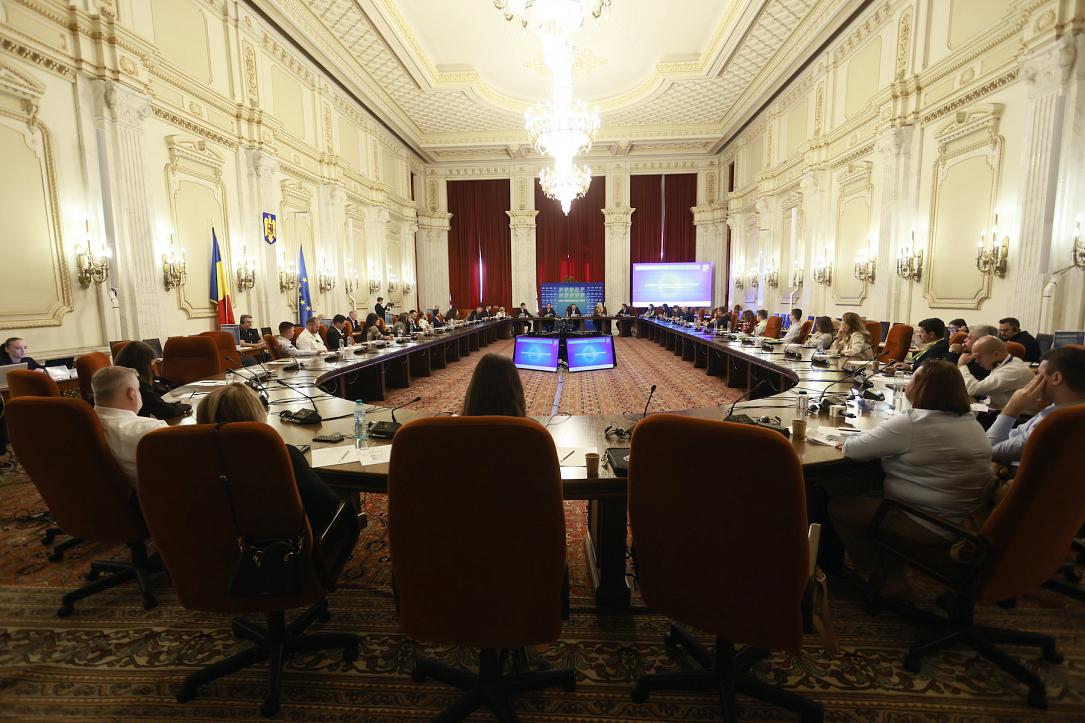Romania is taking tangible action toward its green transition through sustainable infrastructure projects, public‑private partnerships and green bonds. Experts, government officials and business leaders have gathered today at the CES Bucharest ESG Conference, to present progress and identify solutions through which the public and private sectors can collaborate to build a sustainable and competitive economy.
In 2023, Romania established its Green Bond Framework with support from the World Bank and, to date, two green bonds have been issued, according to the representatives of the Ministry of Finance, present at the conference. More than 10.8 billion lei has been raised so far, funding green projects financed exclusively from the state budget. “With green bonds, Romania not only attracts international capital, but also succeeds in funding sustainable state projects in an extremely challenging fiscal environment,” said Diana Popescu, Deputy Director General at the Ministry of Finance.
Meanwhile, Bucharest City Hall is investing heavily in green public transportation and district heating: 100 new trams, 100 electric buses, and 100 trolleybuses are already in service, and the goal is to have 1,500 modern, non‑polluting vehicles by 2030. The capital’s green budget for 2025 is 1 billion lei.
Additionally, the city authorities are preparing to take over the district heating networks – an investment estimated at minimum 700 million lei, with 30% paid upfront and the remainder spread over 5 years. “If we want clean air in Bucharest, we must convince people that fully green public transport by 2030 is the right alternative, and we must prioritize non‑polluting vehicles,” stated Stelian Bujduveanu, interim Mayor of the Capital, at the CES ESG Conference.
The Bucharest Stock Exchange also plays a key role in financing green projects. “The big question is how much we are willing to pay to be sustainable. The Bucharest Stock Exchange provides the framework through which the private sector can fund public projects, but success depends on the state’s stability and predictability as a partner,” said Radu Hanga, Chairman of the Board, Bucharest Stock Exchange.
A Successful Model: The Deposit‑Return System
A successful public–private partnership highlighted at the event was the Deposit-Return System, implemented and managed by RetuRO. Romania now has the largest fully integrated deposit‑return system in the world, which, in just two years since its launch, is already collecting over 80% of beverage packaging placed on the market and delivering it to recyclers. “We have shown that Romania can become a model in Europe through collaboration among producers, retailers, authorities, and citizens,” emphasized Gemma Webb, CEO of RetuRO.
Transforming consumer behavior and reducing food waste was another central theme. For example, in recent years, retailers have developed mechanisms by which near‑expiry products are collected and turned into compost or biogas, creating a circular economy chain. This not only lessens environmental impact, but also involves citizens, encouraging them to take an active role in sustainability and to understand their direct role in preserving resources. Indeed, people’s active participation in sustainable solutions, such as the Deposit‑Return System, represents a crucial step toward Romania’s green transition goals, proving that sustainability projects can succeed when citizens, businesses and authorities work together.
Romania is navigating a complex transition toward a green economy. Tools such as green bonds, public‑private partnerships, or capital market instruments, paired with local initiatives like zero‑pollution public transport and circular waste management, are key elements by which central and local authorities, together with the private sector, can drive sustainable development, participants concluded at the event.
*This is a press release.
